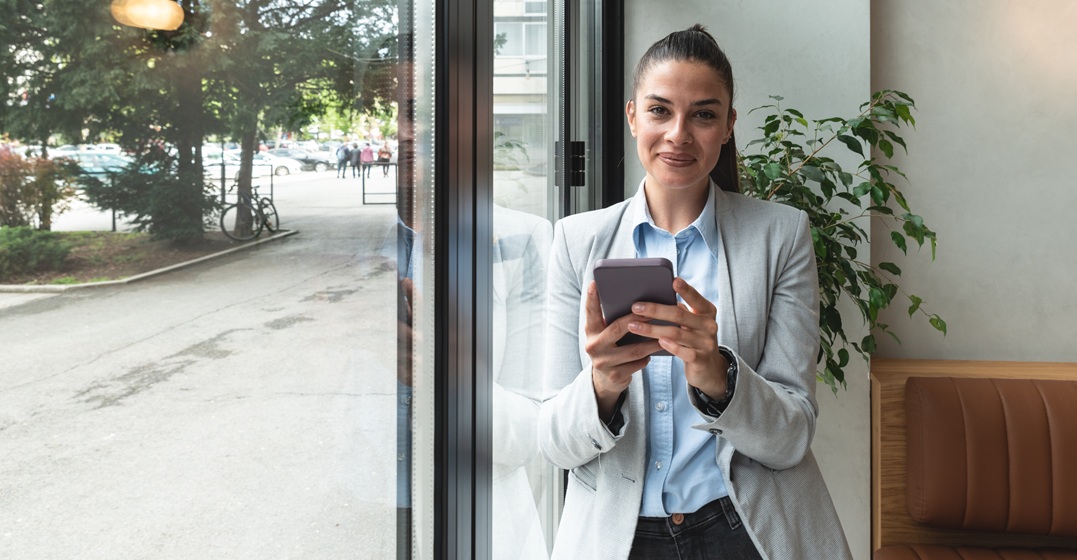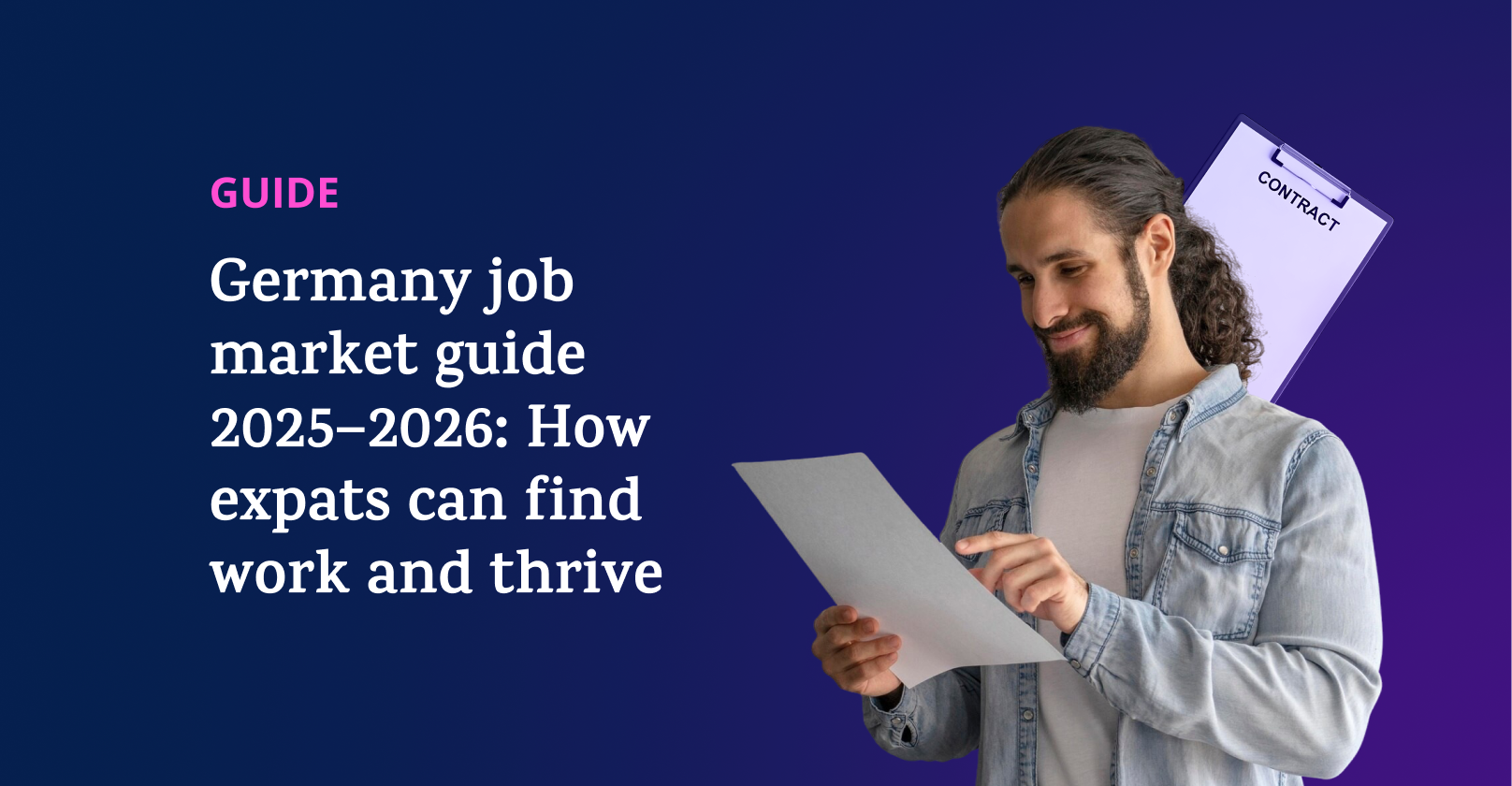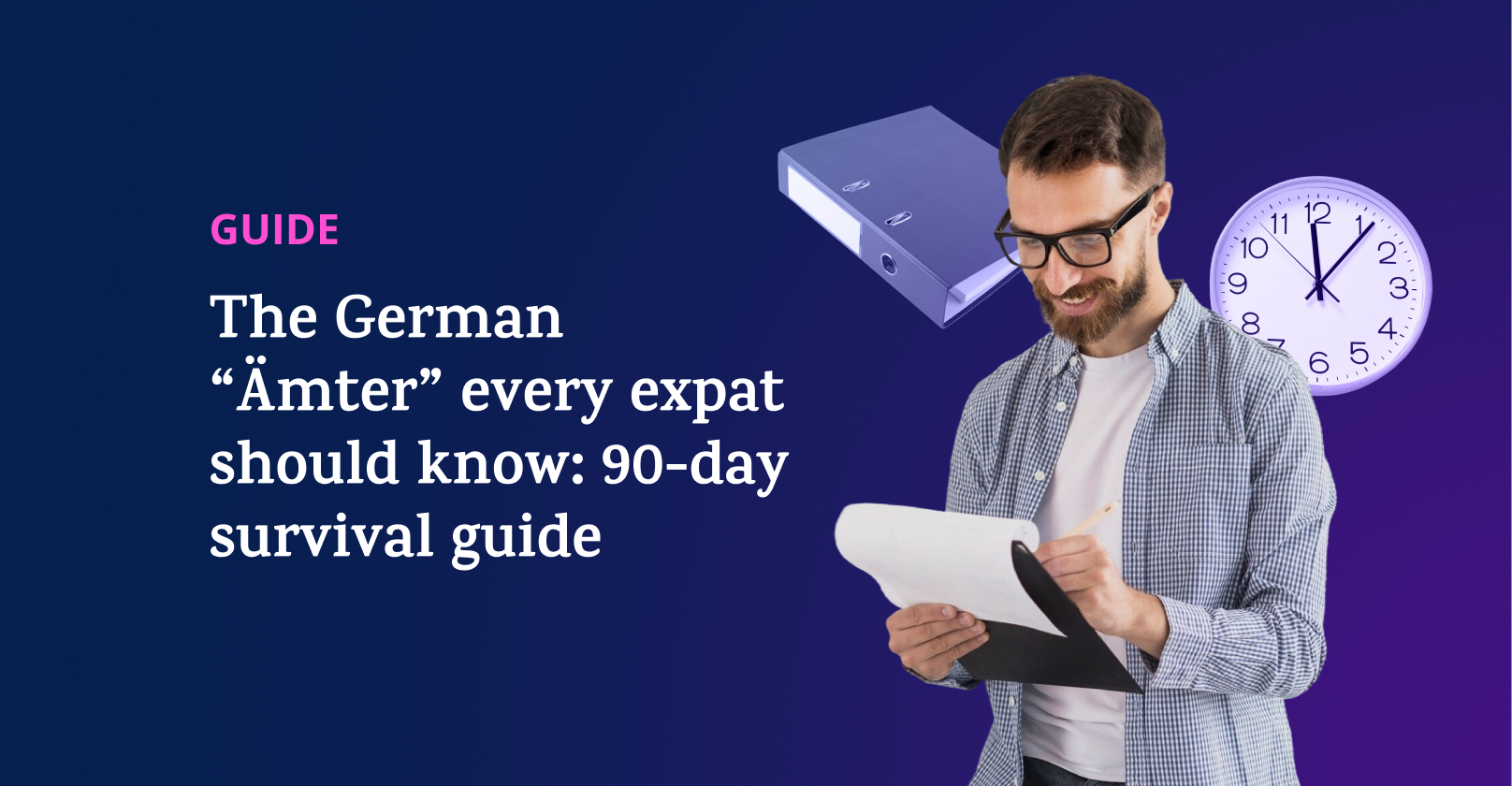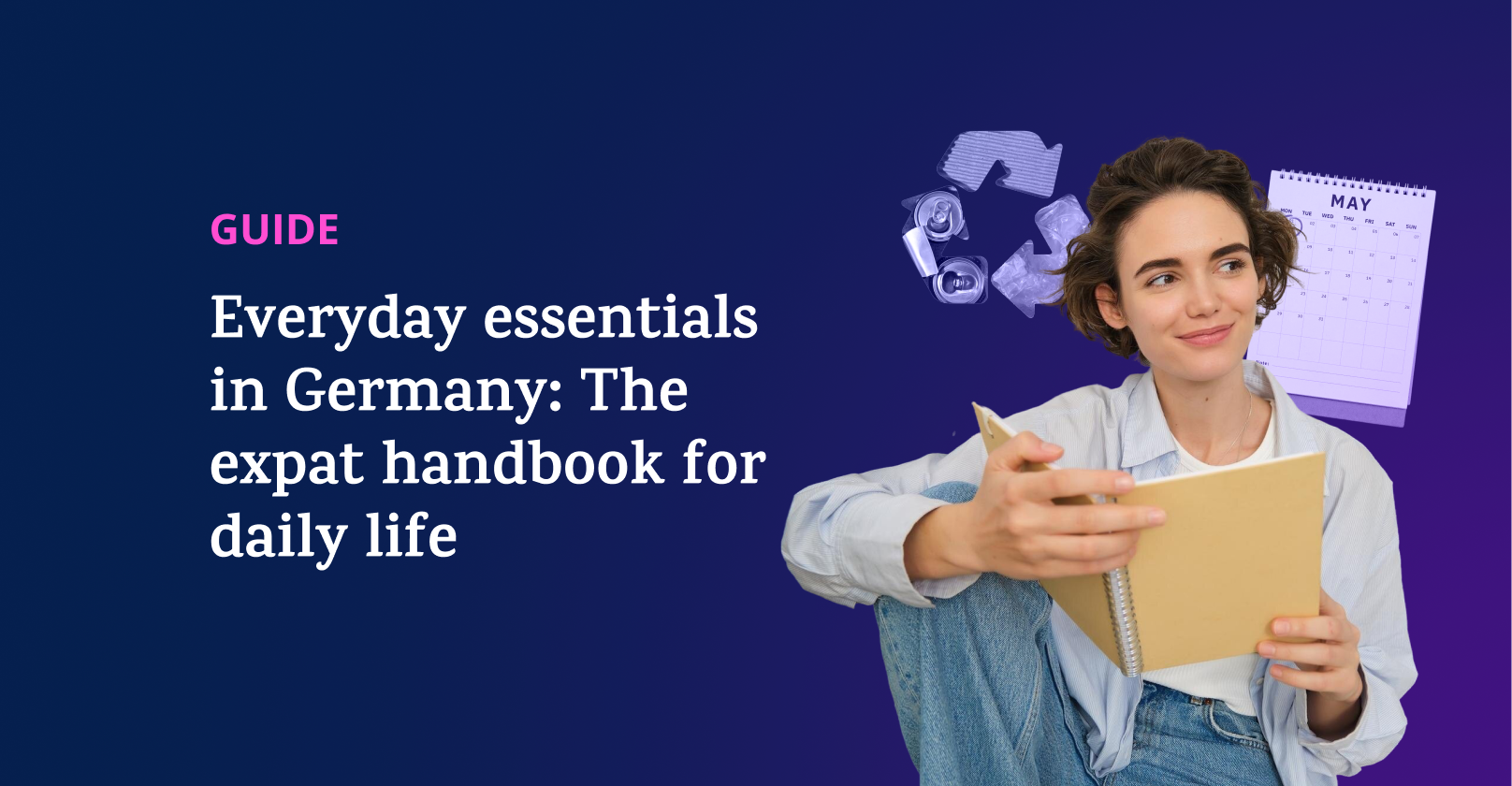National German Language Day: Why the German language matters more than ever
National German Language Day (Tag der deutschen Sprache) celebrates the importance of the German language as a bridge between culture, identity, and opportunity. Observed each September, it’s a reminder that learning German connects people across borders—helping global citizens study, work, and feel at home abroad.
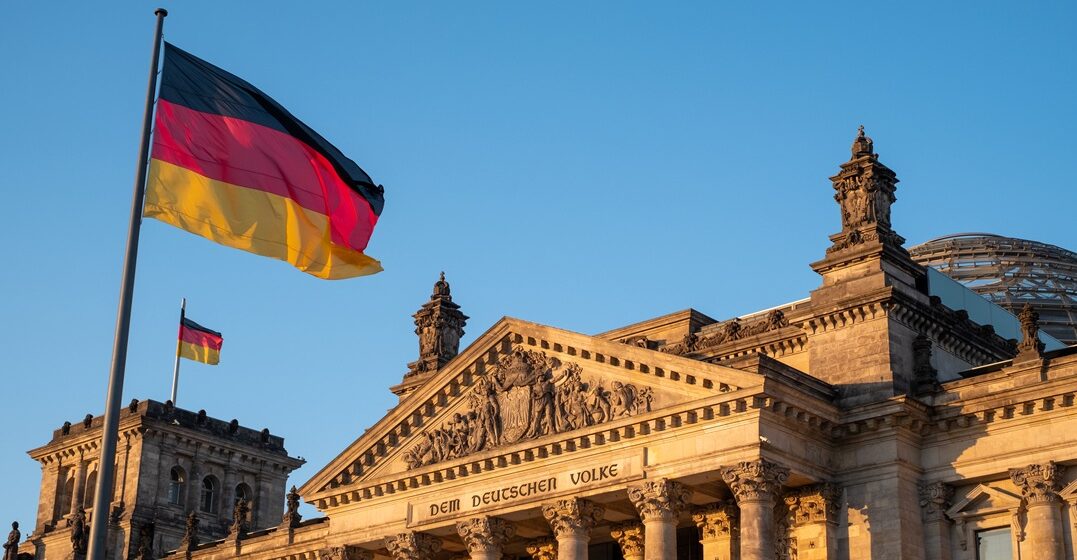
Every year on the second Saturday of September, Germany celebrates Tag der deutschen Sprache, or German Language Day. It’s more than just a tribute to vocabulary and grammar; it’s a celebration of culture, identity, and the way language brings people together.
- Why celebrate a language?
- A living language: German in the world today
- The power of language in integration
- Celebrating German — Quirks, beauty and challenges
- How to celebrate National German Language Day
- FAQs
Why celebrate a language?
Because language is so much more than just rules and words. It’s how we express who we are, share our culture, and open doors to new opportunities. German Language Day is a chance to recognize that German isn’t just spoken in a few countries—it’s a global connector.
From tradition to global connection
The Verein Deutsche Sprache (German Language Association) started Tag der deutschen Sprache to spark a deeper appreciation for the German language. Their goal? To encourage people to use German confidently, to celebrate its richness, and to encourage mindful use of the language—even in a world increasingly filled with English terms.
The celebration happens every year on the second Saturday in September, but its message goes far beyond Germany. It’s an open invitation to German learners around the world to see the language as more than just a subject—it’s a tool for connection, knowledge, and belonging.

Learn German with Lingoda
How it works

A living language: German in the world today
German isn’t just spoken in classrooms or tucked away in textbooks—it’s a language that’s alive and thriving in today’s world. From business and research to culture and daily life, German continues to make a global impact.
Where German is spoken
German is the most widely spoken native language in Europe, with around 90–95 million native speakers. Add to that another 10–25 million people who speak it as a second language, and you're looking at an estimated 175–220 million German speakers worldwide.
You’ll hear German not only in Germany, Austria, and Switzerland, but also in Liechtenstein, Luxembourg, Belgium, and parts of Italy (South Tyrol). Plus, German-speaking communities can be found all over the world, from Eastern Europe to North America and beyond.
German in business, academia and innovation
Germany is Europe’s economic powerhouse, and the German language reflects that influence. It’s widely used in international trade, technical fields, and academic publishing, especially in engineering, science, and philosophy.
If you’re interested in industries like automotive, renewable energy, manufacturing, or IT, learning German can give you a serious edge. It’s not just about speaking the language—it’s about understanding the professional culture behind it.
Learning German today — What global talent needs
So, what’s motivating learners of German today?
- Immigration and visas: Many German residence or work permits require at least B1-level German.
- Career and education: Speaking German helps you feel confident in meetings, job interviews, university courses, and daily life.
- Future-proofing: Each level you reach—A1 to C1—builds your ability to adapt, thrive, and connect in a German-speaking environment.
At Lingoda, our courses are built with these real-world goals in mind. From official forms to workplace chats and cultural nuances, we help you learn the kind of German you'll actually use.

The power of language in integration
Sure, you can get by with English in some parts of Germany—but learning German turns your experience from feeling like a visitor to actually belonging.
When you speak the language, everything shifts:
- Bureaucracy feels less intimidating: You can handle forms, appointments, and official processes with more confidence
- More doors open: From better jobs to university programs that require German
- Connections go deeper: It’s easier to make friends, chat with neighbors, and feel part of the community
- You find your voice: In everyday conversations, on the street, at work, or in class
As calathea_2, an expat living in Germany, put it:
“So, my take is clear. ‘Sprache ist Integration’ in the German context, and life gets a lot more fulfilling and fun with good German.”
That kind of transformation isn’t just practical—it’s personal. It shapes how you show up in your new life.
Celebrating German — Quirks, beauty and challenges
German has a reputation for being precise—but it’s also incredibly expressive. Once you start learning, you’ll discover a richness and playfulness that few other languages offer.
The magic of German words
German can combine multiple ideas into compound nouns, creating colorful expressions that capture complex feelings:
- Fernweh – “far-sickness,” a longing for distant places
- Kummerspeck – literally “grief bacon,” the weight gained from emotional eating
- Wanderlust – the desire to travel and explore
Or unnecessarily long words like Rindfleischetikettierungsüberwachungsaufgabenübertragungsgesetz which may seem extreme, but reflects German’s logical, modular structure.
These aren’t just fun. They express specific emotional states, nouns or situations that English sometimes struggles to match.
Formality, humor, and everyday expression
German also balances structure and playfulness:
- Sie vs du: The difference between formal and informal “you” is deeply cultural — using Sie signals respect in professional or new relationships, while du conveys intimacy with friends or family.
- Idioms: “Ich verstehe nur Bahnhof” (literally: “I only understand train station”) means “I understand nothing.”
- Playful expressions: “Das ist nicht dein Bier” (That’s not your beer) means “that’s not your concern.”
Learning these quirks gives you not just vocabulary, but a sense of how Germans think, laugh, and see the world.
How to celebrate National German Language Day
Whether you’re just starting out or brushing up on your skills, there are lots of simple (and fun) ways to join in:
- Try a free Lingoda class — jump into a beginner lesson or just sample what learning with us feels like
- Watch a German film — start with Dark, Good Bye, Lenin!, or Lola rennt (subtitles totally allowed)
- Tune into German podcasts or music — check out Easy German, Deutschlandfunk, or curated German playlists
- Read a German poem or short story — use a translation alongside if needed
- Practice with a language buddy or join a group — real conversations make all the difference
- Share your favorite German word on social
Even small steps can make a big impact. You’re not just celebrating German—you’re building habits that bring the language into your life.
What is National German Language Day?
It’s Tag der deutschen Sprache, observed on the second Saturday in September, to promote awareness of German and encourage its respectful use.
Why should I learn German today?
German is the most widely spoken native language in Europe and one of the world’s key languages for science, engineering, and business. It opens doors to work, study, and integration in Germany, Austria, and Switzerland — and helps you feel more at home abroad.
What CEFR level do I need for a visa, residency, or working in Germany?
For most residence permits and permanent settlement applications, the German government requires a B1 level according to the Common European Framework of Reference (CEFR). Certain professional or study programs may ask for B2 or C1 proficiency.
Celebrate your journey this National German Language Day
Learning German isn’t just about memorizing rules or passing exams—it’s about stepping into a language that holds centuries of history, layers of culture, and countless opportunities.
With every phrase you learn, you’re doing more than building vocabulary—you’re building a bridge. Whether you're navigating a job interview, chatting with neighbors, or simply ordering coffee with confidence, those moments matter. They’re signs that you’re no longer just learning the language—you’re living it.
So this National German Language Day, celebrate your journey. Be proud of every effort, no matter how small. And when you're ready to keep going, Lingoda is here to guide you—lesson by lesson, step by step, all the way.

Learn German with Lingoda
How it works

We use AI tools to support idea generation and drafting. Every article is edited by our editorial team to ensure accuracy, clarity, and quality.


